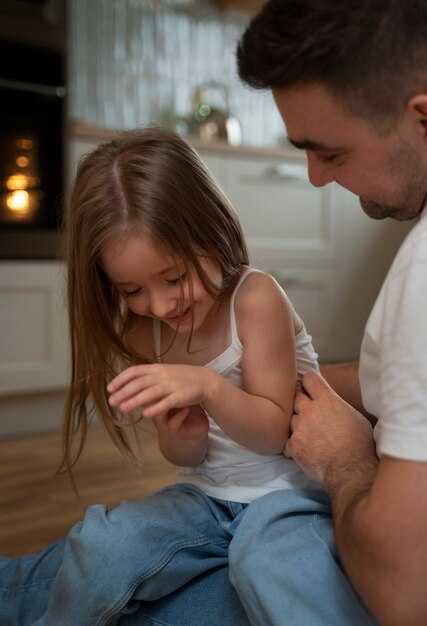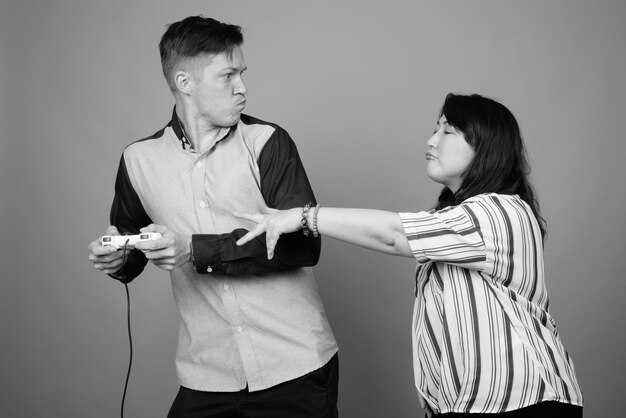Chances are you’ve heard that the single most widespread phobia is public speaking — roughly three out of four people feel nervous at the thought of talking in front of others. Add a background of personal trauma, and the fear can become even more intense. If you follow this channel, you’ve likely seen or felt this yourself: standing before a group can be immobilizing, and some people go to great lengths to avoid speaking up. That avoidance can limit participation at work, stunt career growth, and block the freedom to become who you’re meant to be. Today’s letter comes from a woman who calls herself Sandy. She writes: “Hi Anna — how do I find my voice again? I work in an office with lots of meetings and a clear hierarchy. I lead a small team and I think I manage okay. I’ve always stood up for others, fixed what was broken, fought for what’s right, and helped people reach their goals.” (Pause to underline several phrases for a second read — there’s a lot to unpack here.)
Sandy explains that the real issue appears during meetings and any situation where she has to speak: she spends the whole time trying to stave off a full-blown panic attack. The attacks hit hard as soon as she realizes she’ll need to speak. Her voice freezes regardless of preparation; breathing becomes shallow, her hands tremble, and if she forces words out between short gasps her voice quivers and she visibly collapses inward. On more than one occasion she’s bolted from the room with her heart pounding so violently she felt faint or like she might implode. Sometimes she’s only introducing herself when this happens.
She’s had stage fright and a fear of being put on the spot since childhood. Her early years began fairly normally, though she was hyperactive, likely undiagnosed ADHD, and constantly envious of peers who seemed more confident. Her mother modeled low self-esteem — frequently putting herself down — and Sandy admits she internalized that self-criticism and still wrestles with it. Her father was often absent and had a volatile temper; when he was around she tried to earn his approval but frequently ended up feeling like an obstacle.
At ten, Sandy found her mother crying after receiving a call revealing her father’s affair. She comforted her mother, but the reality of the betrayal soon unfolded: the house was sold, they moved, and Sandy changed schools, leaving friends behind. She remembers feeling disconnected, angry, and performing poorly in class. With only one friend who didn’t treat her well and being picked on, she felt too insecure to defend herself. That’s when she first felt the sting of negative attention — giving a class presentation was a traumatic, formative moment.
After the divorce, another move put her in a new school. She formed one good friendship; her mother tried to keep things stable while battling anorexia and depression. Meanwhile her father married “the other woman,” drank heavily, and often forgot custody arrangements. When she spent weekends with him, she was exposed to frequent drunken fights and temper outbursts that too often dragged her into the middle. During this period her capacity to use her voice diminished further and public-speaking panic attacks began in earnest. She always felt different, as if everyone else had it together while she was the odd one out. Although school performance improved, she never volunteered answers or raised her hand — always convinced others were smarter and superior.
She tried college but dropped out, feeling she lacked whatever quality others possessed to finish. Once, when her father visited and got drunk, he yelled at friends; striving to win his affection had turned her into a people-pleaser. In her working life she compensated with relentless effort and perfectionism — using hard work as a shield against past hurts and to prove her worth despite not having a degree. She longed for respect and equality. Her father died suddenly while she was in her twenties; he had been able to relate to her better as an adult and once expressed pride, but his death left a sense of loss for what was never repaired. Her stepmother passed away a few years ago, and now her mother has Alzheimer’s — it feels like her support system is crumbling before she’s resolved what’s inside her.
She married about eight years ago to a kind man after several unhealthy, codependent relationships, and professionally she’s done well. Still, in meetings and gatherings she feels less than everyone else, loses the ability to articulate, and reverts to that insecure child wanting to disappear. She’s actively avoided any situation that might require speaking to a group, both at work and outside it. This avoidance has shaped her career and her life. As unbelievable as it sounds, she’ll be fifty next year and still coping with these lingering wounds. She’s tried the usual remedies — books, motivational seminars — but nothing seems to heal that broken, insecure part of her from childhood.
At work she earns praise and can communicate comfortably one-on-one: she loves sharing ideas and helping people. Yet in meetings she freezes, hears others speak without issue, which intensifies feelings of failure, and then she berates herself for not being able to match them. She knows, deep down, she has worthwhile contributions, but she can’t outmaneuver the panic to express them.
What a heartfelt letter. The reaction here will be full of compassion — many people will relate. The part that made me laugh a bit was when she said everyone else seems confident; if they only knew. Many in this audience carry similar struggles, and a few likely have even more to contend with. Sandy didn’t say whether she’s tried therapy; that’s important because there are therapeutic and coaching approaches specifically for a fear of public speaking.
Here’s a personal story that might resonate: at fourteen there was a theater audition in Tucson where only musical theater was offered. The audition required singing in front of a room of other kids who were prepared and trained. I took a long bus ride, chose “I Am Sixteen Going on Seventeen,” and when the accompanist began and it was my turn to sing, my mouth opened and I nearly lost control — I abruptly stopped mid-song, ran out in shame, and got home humiliated. It’s one of the most nerve-wracking, shame-filled memories — so the intensity of Sandy’s experience is familiar.
Interestingly, despite being a naturally talkative person and reasonably confident speaking, seeing oneself recorded can be shocking — the voice, the face on video — and that was jarring at first. Two main things helped me become a better speaker. The first was joining Toastmasters. If you haven’t tried it, people often recommend it for good reason: inexpensive, community-centered, and filled with a cross-section of people — students, recent immigrants, stay-at-home parents, retirees, even authors. Everyone shows up terrified, often out of necessity: work, school, or life circumstances require presenting. Watching nervous members take tiny brave steps created an atmosphere of warmth and encouragement. It didn’t take long before the room’s response — kindness, applause, gentle feedback — helped people feel seen and build confidence. In Toastmasters there’s usually a practice of offering constructive, compassionate suggestions like “try looking at one person and then another,” which helps the speaker feel connected rather than judged. While no single group is uniformly perfect, many Toastmasters circles have a supportive culture and are excellent places to practice expressing yourself.
I’ve always believed it’s a huge gap that schools don’t systematically teach everyone how to express ideas clearly in writing and speech. If people can’t communicate, how can they influence the world or share their gifts? Learning to speak and write well is essential.
About Sandy’s childhood cluster of events — they feel like an acute trauma and can create the kind of powerful physiological reaction she describes. A few therapeutic avenues are worth considering. EMDR (Eye Movement Desensitization and Reprocessing) may not work for every childhood trauma, but it can be helpful for memories that feel stuck and trigger intense bodily reactions. Other trauma-focused therapies and somatic approaches can loosen the emotional and self-critical beliefs lodged in the nervous system that cause adrenaline surges, rapid heartbeat, and panic. These reactions are neurologically based and not the person’s fault. Sometimes an external nudge — for instance, techniques that stimulate the vagus nerve — can support regulation, like a supplement that helps a body recover. Think of it as giving the nervous system a little boost to relearn calm responses instead of automatic alarm.
Release the shame around having this reaction; it’s understandable. Worrying and self-blame only nourish the problem, like pouring lighter fluid on a small fire. This can be quieted, but often it requires a sequence of steady steps over time: small, manageable speaking experiences that build safety. Another practical tool that helped me was attending open meetings in recovery circles. Even though I’m not an alcoholic, going to open AA meetings and related groups provided experience framing feelings into words in a circle of peers. You can raise your hand and share how you feel with others who are simply present and seldom respond aggressively. This repeated, low-stakes practice teaches how to put your experience into language while sitting among equals. Often, the urge to speak creates a little flutter — butterflies in the chest — and that natural impulse to express wants an outlet. Working through the barriers is part of healing.

Think of the process as a continuum: you’re not failing, you’re gradually negotiating obstacles. Treat yourself with kindness and find supportive people who will help you take gentle, doable steps toward speaking more freely. The goal of healing isn’t just relief; it’s reclaiming the ability to be fully expressed. Life asks great things of us, and to contribute those things we must be unblocked from the thoughts and fears that silence us. When those constraints loosen, people begin to sing — metaphorically and literally — like themselves.
If you’d like a practical tool that acts like WD-40 on calcified fears, consider trauma therapy options (EMDR, somatic work) and daily practices that help unstick old patterns. There’s a free introductory course available that teaches techniques to name fears and resentments and can offer immediate relief, clearer thinking, and a fresh perspective on next steps. If you take that free course, you’ll be invited to weekly community calls — led twice a month by me and otherwise by my team — where we practice techniques, answer questions, and help people apply these tools to release fearful and resentful thoughts that keep them from speaking and living fully. If you want to try it, sign up through the link provided and give it a chance. You might find a small but meaningful shift that opens the door to bigger ones. Wishing you courage and steady progress — there’s a whole community rooting for you.


 麻痺する#1恐怖:グループで発言する自由になるために">
麻痺する#1恐怖:グループで発言する自由になるために">

 Trauma Is a Portal Where Evil Gets In, Unless You Fight It">
Trauma Is a Portal Where Evil Gets In, Unless You Fight It">
 10 Ways Past Trauma Suppresses Income (How to Change This Now)">
10 Ways Past Trauma Suppresses Income (How to Change This Now)">
 Relationship Advice DOESN’T work on Narcissists.">
Relationship Advice DOESN’T work on Narcissists.">
 ">
">
 5 Sentences That "Unlock" Avoidants When They Are Silent">
5 Sentences That "Unlock" Avoidants When They Are Silent">
 7 Clues to SPOT the Narcissist EARLY!">
7 Clues to SPOT the Narcissist EARLY!">
 How to FIGHT so you don’t HATE each other.">
How to FIGHT so you don’t HATE each other.">
 My Partner Always Feels Attacked!">
My Partner Always Feels Attacked!">
 3人の元回避型が明かす、何が最終的に彼らを変化させ、愛から逃げるのを止めたのか">
3人の元回避型が明かす、何が最終的に彼らを変化させ、愛から逃げるのを止めたのか">
 Why ‘Managing Your Emotions’ Is Making You Feel Worse">
Why ‘Managing Your Emotions’ Is Making You Feel Worse">